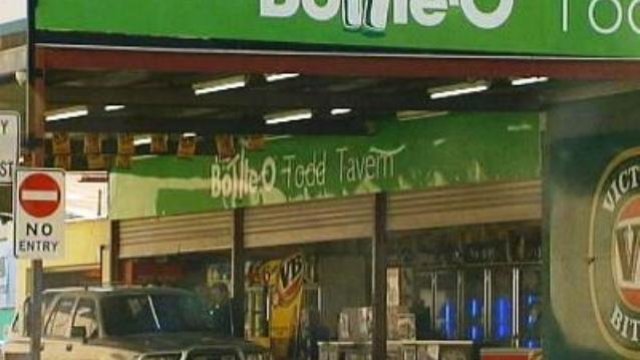
The Country Liberal (CLP) government of the Northern Territory announced sweeping new police powers on May 10 that will, in effect, criminalise drinking across the NT.
Police will be able to issue “alcohol protection orders” to anybody charged with an alcohol-related offence that carries a minimum sentence of six months in prison. The orders will be issued for three months at a time (up to 12 months in total), and prevent the person from consuming alcohol or being on licensed premises.
The measure is part of the CLP’s plan to “crack down on booze crimes”, which also includes mandatory rehabilitation centres — where “problem drunks” can be detained for three months.
NT Business Minister Dave Tollner, who announced the measures on May 10, said the new plan would be different to the Banned Drinkers Register (BDR), introduced by the previous Labor government and scrapped when the CLP came to power in August last year.
“The BDR was not a law enforcement tool used by police,” he said. “It was a tool to restrict alcohol at the point of sale for people who’d been taken into protective custody three times or more in six months.
“The Alcohol Protection Orders are purely a law enforcement tool and will be issued by police with detection and enforcement of breaches through policing activities.”
Criminalising drinking, rather than taking on supply of alcohol and the powerful liquor lobby, flies in the face of best-practice public health recommendations.
Unlike under the BDR, alcohol outlets will have no way to know whether a customer has an Alcohol Protection Order against them. The government has not said how the new approach will be policed.
In response to the announcement, the North Australian Aboriginal Justice Agency released this statement on May 13.
* * *
The North Australian Aboriginal Justice Agency (NAAJA) has criticised the NT government’s announcement of alcohol protection orders as being ineffective, a waste of money and potentially dangerous.
“The government is asking us to believe that people with a serious grog problem are going to stop drinking overnight because of an alcohol protection order,” said NAAJA’s CEO Priscilla Collins. “We know that is not going to work and for people who have a serious addiction, this is potentially very dangerous.
“The Territory has a drinking problem and it needs a comprehensive medical and public health response, not a punitive criminal one.”
The laws criminalise drinking by making it an offence to breach an alcohol protection order. Minister Tollner has admitted that this will mean more people will be locked up and go to jail for drinking. It will overwhelmingly impact Aboriginal people and lead to the deaths of more Aboriginal people in custody.
“This is a major step backwards,” said Collins. “The government has learnt nothing from the Royal Commission into Aboriginal Deaths in Custody. That warned against criminalising drunkenness and emphasised diversion from police custody. The government is doing exactly the opposite.
“The policy also does not make economic sense. It costs about $250 per day to lock someone up in the NT. We are already locking people up at five times the national average. Our prisons are overflowing and our new prison will already be too small when it opens in 2014. This means we will have to keep the current prison open and the NT taxpayer will be asked to foot the massive bill.
“There is a chronic shortage of services, particularly in remote Aboriginal communities, that help people deal with their alcohol addiction. Throwing more money into locking people up sounds tough but is just bad policy — it won’t fix the problem.”
NAAJA calls on the government to conduct a comprehensive review of alcohol policy in the NT. It is time to take a hard look at the evidence of what will work to deal with the NT’s drinking problem.
Collins said: “Sooner or later, the government has to get serious about tackling the supply of alcohol. We know that is a major part of the problem. Unfortunately the government isn’t prepared to take on the liquor industry.”